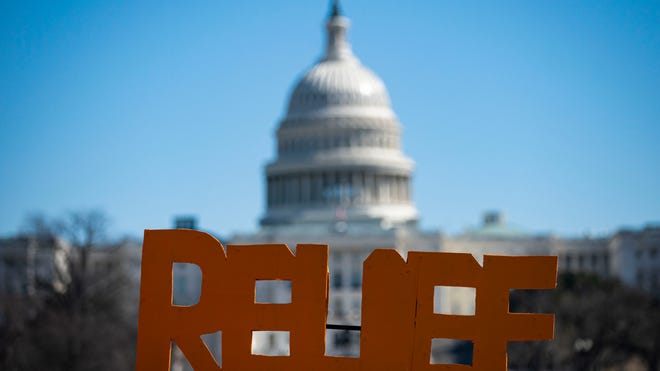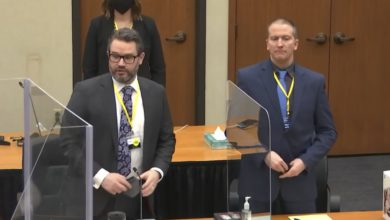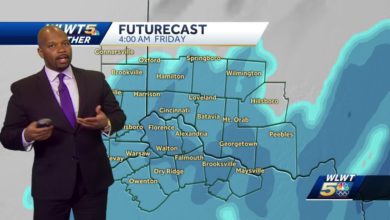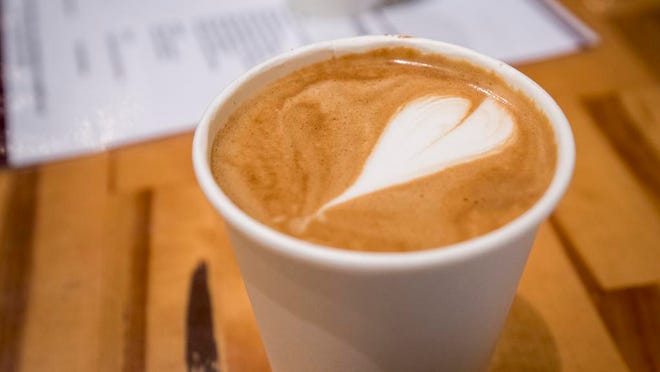
After new COVID-19 cases fell in recent weeks from their record-high peak in January, President Joe Biden's top public health officials warned Monday that the U.S. could "lose the hard-earned ground we have gained" if cases plateau at their current level.
Dr. Rochelle Walensky, director of the Centers for Disease Control and Prevention, said Monday that she was "deeply concerned" as new case counts stall but states continue their rollbacks of virus-related restrictions.
"We cannot be resigned to 70,000 cases per day, 2,000 daily deaths," Walensky said. "We stand to lose the hard-earned ground we have gained."
Sunday marked the first time in more than a month that most states reported rising case counts, and more cases were recorded in the latest week than a week earlier, a USA TODAY analysis of Johns Hopkins University data shows.
On Monday, new rollbacks also took effect in states including Virginia removing a midnight-to-5 a.m. curfew and increasing capacity for outdoor gatherings, Wyoming lifting all restrictions on personal care businesses, New Jersey opening large entertainment venues at 10% capacity indoors, and Massachusetts easing restrictions for restaurant capacity and allowing a number of indoor venues to reopen with restrictions.
Also in the news:
►Johnson & Johnson began distributing its vaccine Sunday; nearly 4 million doses are expected to be equally distributed this week among all states and territories. Jeff Zients, the White House COVID-19 response coordinator, said Monday that J&J's distribution will slow after this week as its entire inventory is sent out but that it would provide 16 million additional doses by the end of the month.
►In the first two months of 2021, the U.S. reported more dead than it had in the first six deadly months of the pandemic: 160,209 people, a USA TODAY analysis of Johns Hopkins University data shows.
►Dr. Anthony Fauci, head of the National Institute of Allergy and Infectious Diseases, told NBC's "Meet The Press" on Sunday that elementary school children may start being vaccinated at the end of the year or beginning of 2022. High schoolers may start getting their doses in the fall, he said.
►NBA G League guard Jeremy Lin shared on social media that he experienced an act of racism – being called “coronavirus” – on the basketball court, sparking a league investigation.
►The Senate becomes the focus of President Joe Biden's $1.9 trillion COVID-19 relief package after the House approved it Saturday. The measure would provide millions of Americans $1,400 stimulus payments, ramp up vaccine distribution and extend unemployment aid through the summer.
►Native American leaders across California said COVID-19 deaths have shrouded their communities, yet state figures show few American Indian people have died here compared with other states with significant Indigenous populations. Leaders and experts fear deaths in their communities have been undercounted because of a long history of Native Americans being racially misclassified.
? Today's numbers: The U.S. has more than 28.6 million confirmed coronavirus cases and 513,000 deaths, according to Johns Hopkins University data. The global totals: More than 114.2 million cases and 2.53 million deaths. More than 96.4 million vaccine doses have been distributed in the U.S. and about 75.2 million have been administered, according to the CDC.
? What we're reading: The number of COVID-19 cases and deaths at America's nursing homes has dropped significantly since December as millions of vaccine doses have been shot into the arms of residents and staff. Read the full story.
USA TODAY is tracking COVID-19 news. Sign up for our Coronavirus Watch newsletter for updates directly to your inbox or join our Facebook group to connect with others about the coronavirus.
Variant cases quintupled in February
The U.S. reported 306 new coronavirus variant cases Sunday, a record increase for viruses that can spread more easily, dodge some treatments and immunities, or both.
Nearly all the new cases were in three states: Florida, up 104 cases to 605; Michigan, up 85 cases to 421; and Texas, up 41 cases to 102.
Those new cases included Florida adding four cases to its previous one case of P.1, a dangerous variant first seen in Brazil. Florida also got its first reported case of B.1.351, a variant first seen in South Africa. Massachusetts and California reported two and one new cases.
Most cases – new and existing – are of B.1.1.7, a variant first seen in the United Kingdom that the CDC says could become America's predominant version in March.
Over the month of February, known variant cases quintupled from 471 to 2,463 even as total coronavirus cases were dropping from a peak in January.
– Mike Stucka
Local pharmacies say they need more vaccines as CVS, Walgreens ramp up shots
Community pharmacies can play a critical role in delivering COVID-19 shots, but, so far, drugstore giants CVS and Walgreens and big-box stores such as Walmart and Kroger have been getting the lion’s share of vaccines from the initial allotment devoted to retail pharmacies, independent pharmacists say.
Some independent pharmacists say they're frustrated that they aren’t receiving as many vaccines proportionally as major chains are getting from the federal, state and local government, and they reject the suggestion that they don't have the technology necessary to handling the scheduling process
Still representing about 1 in 3 of the nation's 60,000 pharmacies, these businesses say their personal relationships with their customers are crucial to a successful vaccine rollout.
In the 63 major jurisdictions identified by the CDC for distribution of vaccines, locally owned pharmacies were initially allotted shots in only 17, according to the National Community Pharmacists Association. But more than half of locally owned pharmacies are based in communities with a “high” or “very high” rating on the CDC’s social vulnerability index.
If local pharmacies are left out, that threatens to prevent Americans in low-income communities and people of color from getting vaccinated quickly, independent pharmacists say. “Local pharmacies have to be involved,” said B. Douglas Hoey, CEO of the National Community Pharmacists Association.
– Nathan Bomey
Florida's oldest residents lag in COVID vaccinations, state report shows
When Florida Gov. Ron DeSantis in December limited inoculations to seniors 65 and older, he said, "The vaccines are going to be targeted where the risk is greatest, and that is in our elderly population."
But as vaccinations ramp up statewide, Florida's oldest residents are not getting the share of immunizations equivalent to the risk they bear from the fatal pathogen, especially recently.
Florida seniors 75 and older make up 62% of 30,734 residents killed by the coronavirus since the pandemic began, but only 32% of the 1,642,800 people who have received their second of the two-shot vaccine, a state report released Saturday shows.
Seniors 65 to 74, meanwhile, account for 21% of the resident death toll and about 41% of the immunized.
– Chris Persaud, Palm Beach Post
COVID-19 survivors might need only one dose of vaccine, studies suggest
Six recent studies suggest that people who've already come down with COVID-19 might not need to get a second vaccine dose.
The federal government has not changed its recommendation for a second dose, but studies that look at the immune response show that while a first shot gives people who have recovered from COVID-19 a huge boost, the second shot makes little difference.
"I think that makes perfect sense," said Dr. Paul Offit, director of the Vaccine Education Center at Children's Hospital of Philadelphia. Read more here.
– Karen Weintraub
COVID-19 testing sites across US are closing amid plunging demand
Just five weeks ago, Los Angeles County was conducting more than 350,000 weekly coronavirus tests, including at a massive drive-thru site at Dodger Stadium, as health workers raced to contain the worst COVID-19 hot spot in the U.S.
Now, county officials say testing has nearly collapsed. More than 180 government-supported sites are operating at only a third of their capacity.
"It's shocking how quickly we've gone from moving at 100 miles an hour to about 25," said Dr. Clemens Hong, who leads the county's testing operation. After a year of struggling to boost testing, communities across the country are seeing plummeting demand, shuttering testing sites or even trying to return supplies.
– Matthew Perrone, Palm Springs (Calif.) Desert Sun
Contributing: Mike Stucka, USA TODAY; The Associated Press







